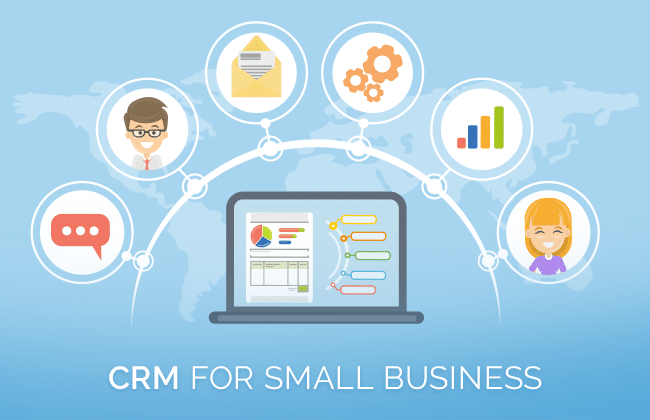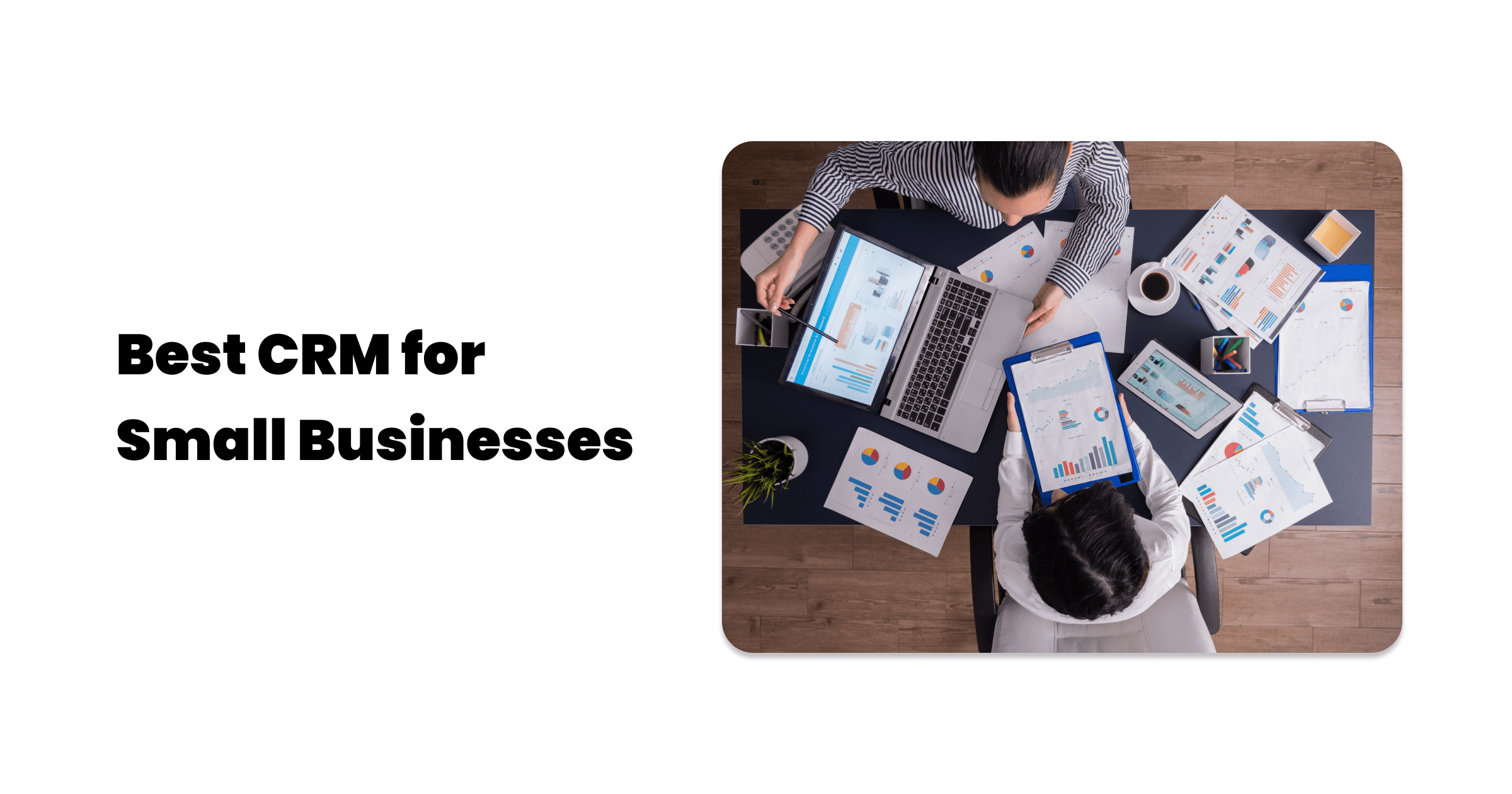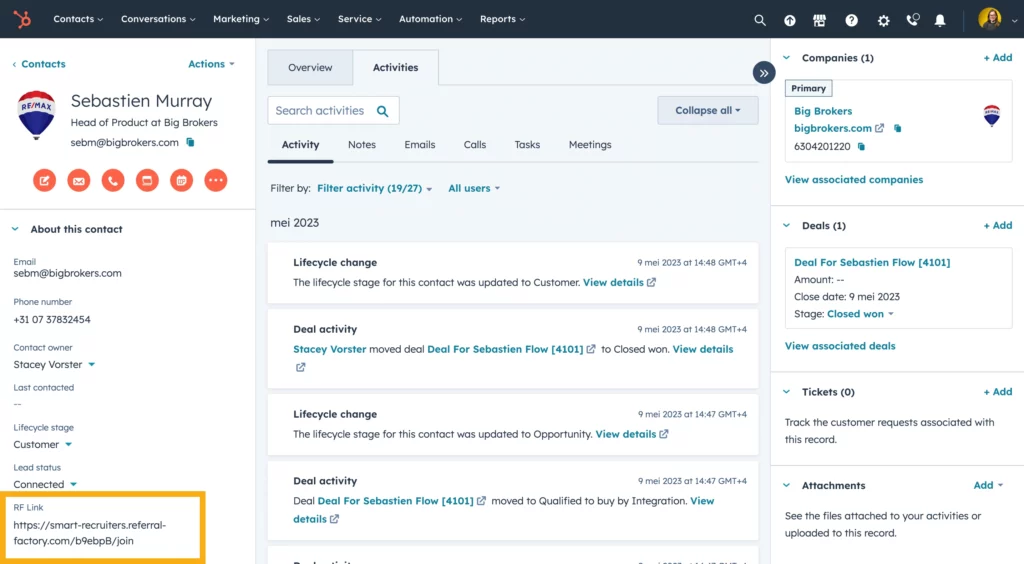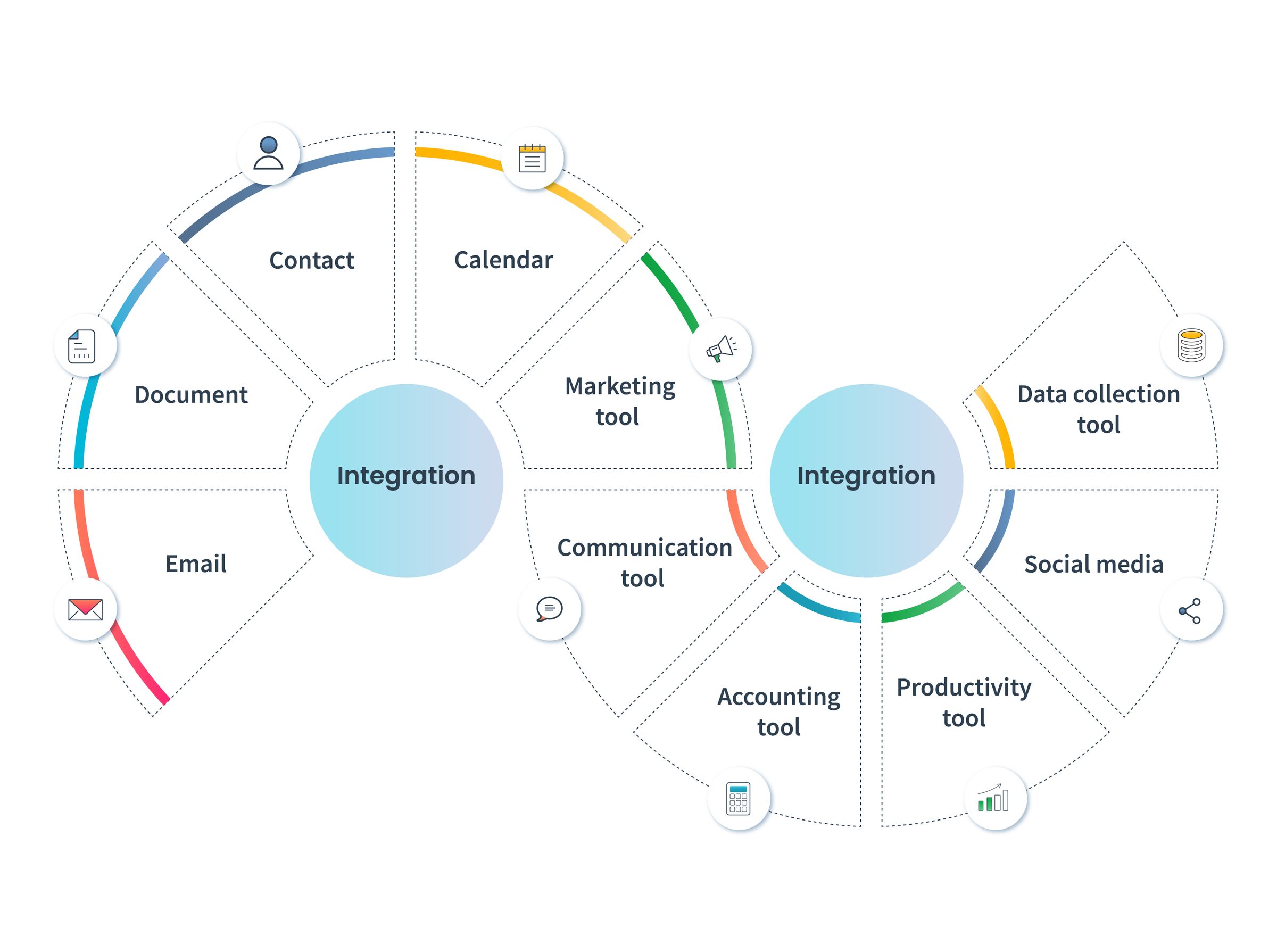Small Business CRM Basics 2025: Your Ultimate Guide to Customer Relationship Management

Small Business CRM Basics 2025: Your Ultimate Guide to Customer Relationship Management
Running a small business is a whirlwind of activity. You’re juggling sales, marketing, customer service, and everything in between. Amidst the chaos, one thing remains constant: the importance of your customers. They’re the lifeblood of your business, and nurturing those relationships is key to long-term success. That’s where a Customer Relationship Management (CRM) system comes in. Think of it as your central hub for all things customer-related, and in 2025, it’s more crucial than ever. This comprehensive guide will walk you through the small business CRM basics, equipping you with the knowledge you need to thrive in the competitive landscape.
What is a CRM System? Decoding the Acronym
Let’s start with the fundamentals. CRM stands for Customer Relationship Management. It’s a technology that helps businesses manage and analyze customer interactions and data throughout the customer lifecycle. This includes everything from potential leads to existing customers and even former clients. The primary goal of a CRM is to improve business relationships, retain customers, and drive sales growth.
In essence, a CRM system is a centralized database that stores all your customer information. This includes contact details, communication history, purchase history, and any other relevant information. Instead of having this data scattered across spreadsheets, email inboxes, and sticky notes, a CRM consolidates it into a single, accessible location. This allows your team to have a 360-degree view of each customer, enabling them to provide personalized service and make informed decisions.
Why Your Small Business Needs a CRM in 2025
In the fast-paced business environment of 2025, a CRM is no longer a luxury; it’s a necessity. Here’s why:
- Improved Customer Relationships: CRM systems allow you to personalize interactions, understand customer needs, and provide proactive support, leading to stronger relationships and increased customer loyalty.
- Increased Sales: By tracking leads, managing sales pipelines, and automating sales processes, a CRM can significantly boost your sales performance.
- Enhanced Efficiency: A CRM automates repetitive tasks, freeing up your team to focus on more strategic activities, like building relationships and closing deals.
- Better Data Analysis: CRM systems provide valuable insights into customer behavior, sales trends, and marketing campaign performance, empowering you to make data-driven decisions.
- Streamlined Communication: CRM systems centralize all communication, ensuring that everyone on your team has access to the same information and can communicate effectively with customers.
- Scalability: As your business grows, a CRM can scale with you, accommodating more users, data, and features.
Key Features of a CRM System
While CRM systems vary in their specific features, some core functionalities are essential for any small business. Here’s a breakdown of the key features you should look for:
Contact Management
This is the foundation of any CRM. Contact management allows you to store and organize customer information, including contact details, company information, and notes. It should also allow you to segment your contacts based on various criteria, such as demographics, purchase history, and lead source.
Lead Management
Lead management helps you track and nurture potential customers throughout the sales process. Features include lead capture, lead scoring, and lead assignment. A good lead management system will help you identify and prioritize the most promising leads, ensuring that your sales team focuses their efforts on the highest-potential opportunities.
Sales Automation
Sales automation streamlines your sales processes by automating repetitive tasks, such as email follow-ups, appointment scheduling, and quote generation. This frees up your sales team to focus on building relationships and closing deals.
Marketing Automation
Marketing automation allows you to automate marketing tasks, such as email campaigns, social media posting, and lead nurturing. This helps you reach more customers, generate more leads, and improve your marketing ROI.
Reporting and Analytics
Reporting and analytics provide insights into your sales performance, customer behavior, and marketing campaign effectiveness. These insights enable you to make data-driven decisions and optimize your business strategies.
Customer Service and Support
Many CRM systems include features for managing customer service and support interactions, such as ticketing systems, knowledge bases, and live chat. This helps you provide excellent customer service and resolve customer issues quickly and efficiently.
Integration
The ability to integrate with other business applications, such as email marketing platforms, accounting software, and social media channels, is crucial for a seamless workflow. Integration allows you to share data between different systems, eliminating the need for manual data entry and ensuring that everyone has access to the same information.
Choosing the Right CRM for Your Small Business
With so many CRM options available, choosing the right one can feel overwhelming. Here’s a step-by-step guide to help you make the right decision:
1. Define Your Needs and Goals
Before you start evaluating CRM systems, take the time to define your specific needs and goals. What are your biggest pain points? What do you hope to achieve with a CRM? Make a list of the features that are most important to you. This will help you narrow down your options and choose a system that meets your specific requirements.
2. Consider Your Budget
CRM systems vary in price, from free to enterprise-level solutions. Determine your budget and choose a system that fits your financial constraints. Remember to factor in the cost of implementation, training, and ongoing maintenance.
3. Evaluate Your Options
Once you have a clear understanding of your needs and budget, start researching different CRM systems. Read reviews, compare features, and consider the pros and cons of each option. Take advantage of free trials to test the systems and see how they work in practice.
4. Assess Ease of Use
A CRM system should be easy to use and intuitive. If your team struggles to use the system, they won’t use it, and you won’t see the benefits. Look for a system with a user-friendly interface, clear navigation, and helpful tutorials.
5. Check for Integration Capabilities
Make sure the CRM system integrates with the other business applications you use, such as your email marketing platform, accounting software, and social media channels. This will ensure a seamless workflow and eliminate the need for manual data entry.
6. Consider Scalability
Choose a CRM system that can scale with your business. As your business grows, you’ll need a system that can accommodate more users, data, and features. Make sure the system you choose can meet your future needs.
7. Prioritize Customer Support
Choose a CRM provider that offers excellent customer support. You’ll need help with implementation, training, and ongoing support. Look for a provider that offers multiple support channels, such as phone, email, and live chat.
Top CRM Systems for Small Businesses in 2025
The CRM landscape is constantly evolving. Here are some of the top CRM systems for small businesses in 2025, based on their features, ease of use, and pricing:
- HubSpot CRM: A popular choice for its free version and user-friendly interface. HubSpot CRM offers a wide range of features, including contact management, lead tracking, and sales automation.
- Zoho CRM: A versatile and affordable CRM system with a comprehensive set of features, including sales force automation, marketing automation, and customer support.
- Salesforce Sales Cloud: A powerful and scalable CRM system that’s ideal for growing businesses. Salesforce Sales Cloud offers a wide range of features, including sales automation, marketing automation, and analytics.
- Pipedrive: A sales-focused CRM system that’s designed to help sales teams close more deals. Pipedrive offers a visual sales pipeline, lead management features, and sales automation tools.
- Freshsales: A user-friendly CRM system that offers a range of features, including contact management, lead tracking, and sales automation. Freshsales is a good choice for businesses that are looking for an affordable and easy-to-use CRM.
Remember that the best CRM for your business depends on your specific needs and goals. Take the time to evaluate your options and choose a system that’s the right fit for you.
Implementing Your CRM: A Step-by-Step Guide
Choosing a CRM is only the first step. Successful implementation is crucial to realizing the benefits of your new system. Here’s a step-by-step guide to help you get started:
1. Plan Your Implementation
Before you begin implementing your CRM, create a detailed plan. This should include your goals, timelines, and budget. Identify the key stakeholders who will be involved in the implementation process.
2. Import Your Data
Import your existing customer data into your CRM system. This may involve importing data from spreadsheets, email inboxes, and other sources. Make sure your data is clean and organized before you import it.
3. Customize Your CRM
Customize your CRM to meet your specific needs. This may involve creating custom fields, configuring workflows, and setting up integrations with other business applications.
4. Train Your Team
Train your team on how to use the CRM system. Provide them with clear instructions, tutorials, and ongoing support. Make sure they understand the importance of using the CRM and how it can help them be more successful.
5. Monitor and Optimize
Once your CRM is up and running, monitor its performance and make adjustments as needed. Track your key metrics and identify areas for improvement. Regularly review your CRM configuration and make changes to optimize its performance.
Best Practices for Small Business CRM Success
Implementing a CRM is a significant investment, but it’s worth the effort when done right. Here are some best practices to ensure your CRM success:
- Get Buy-in from Your Team: Make sure your team understands the benefits of the CRM and is committed to using it. Involve them in the implementation process and provide them with the training and support they need.
- Keep Your Data Clean: Regularly clean and update your customer data to ensure its accuracy. This will help you make better decisions and provide better customer service.
- Use Automation Wisely: Automate repetitive tasks to save time and improve efficiency, but don’t overdo it. Make sure your automation efforts are aligned with your business goals.
- Track Your Key Metrics: Track your key metrics, such as sales, customer satisfaction, and lead conversion rates. This will help you measure your CRM’s performance and identify areas for improvement.
- Review and Adapt: Regularly review your CRM’s performance and make adjustments as needed. The business landscape is constantly changing, so it’s important to adapt your CRM strategy to meet your evolving needs.
The Future of CRM and Small Businesses in 2025
The CRM landscape is constantly evolving, and the future holds exciting possibilities for small businesses. Here are some trends to watch out for in 2025:
- Artificial Intelligence (AI): AI will play an increasingly important role in CRM, automating tasks, providing insights, and personalizing customer interactions.
- Mobile CRM: Mobile CRM will become even more important, allowing businesses to access their customer data and manage their sales processes on the go.
- Customer Data Platforms (CDPs): CDPs will become more popular, providing a centralized view of customer data from multiple sources.
- Hyper-Personalization: Businesses will use CRM data to create hyper-personalized customer experiences, tailoring their marketing messages, product recommendations, and customer service interactions to individual customer needs.
- Focus on Customer Experience: The focus will shift from simply managing customer relationships to delivering exceptional customer experiences.
By embracing these trends, small businesses can stay ahead of the curve and gain a competitive advantage in the years to come.
Conclusion: Embracing the Power of CRM
In the ever-evolving business landscape of 2025, a CRM system is not just a tool; it’s a strategic asset. By implementing a CRM, small businesses can improve customer relationships, increase sales, enhance efficiency, and make data-driven decisions. By understanding the basics, choosing the right system, and following best practices, you can unlock the full potential of CRM and drive your small business to new heights. Start your CRM journey today and experience the transformative power of customer relationship management!




